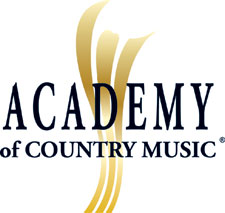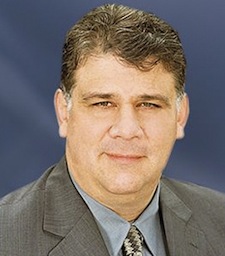
Connecting with fans has always been an important part of the music business, because the fans—and ultimately their pocketbooks —are what make or break a career. The rise of digital technology and social media has brought about changes in the ways artists reach out to fans, and affected the industry in a multitude of ways. The latest effect: shifts in awards shows.
Taking home a trophy from one of these glittering gloryfests is becoming less important and getting face time with fans—or a coveted performance slot—is the real objective. On the day after an awards show, industry insiders are more concerned with television ratings than who won the night’s top honor. The following week, sales execs sit on pins and needles waiting for SoundScan to show a post-awards bump. To keep up, awards show organizers are working harder than ever to engage fans, which in turn drives viewers and sales.
Adding Nominees…Changing Voting Methods
Sunday night’s (3/7) Academy Awards offered 10 nominees, doubling the number from last year, for the show’s Best Picture category. The Academy knew the show needed an update after its 2009 television ratings were the lowest in history. The purpose of adding more nominees for Best Picture was to make room for the box office blockbusters that are often snubbed by voters, and hopefully draw a larger audience, including younger viewers, which are preferred by marketers.
 The Academy of Country Music has taken a similar approach to draw interest in its top prize, Entertainer of the Year, for the April 18 ACM Awards. There will be eight nominees, up from five the year before. ACM Executive Director Bob Romeo explains, “By allowing three more people to run it’s more inclusive for the format, and it gives us three more people to help promote the viewing of the show. I think if you want to remain viable today, you have to be engaging the fans and give them some buy-in to what you are doing.” This will be the third year that Entertainer will be selected by fans, another way the Academy is driving engagement. ACM professional members narrow down the Entertainer nominees to the final eight and fans vote for the overall winner.
The Academy of Country Music has taken a similar approach to draw interest in its top prize, Entertainer of the Year, for the April 18 ACM Awards. There will be eight nominees, up from five the year before. ACM Executive Director Bob Romeo explains, “By allowing three more people to run it’s more inclusive for the format, and it gives us three more people to help promote the viewing of the show. I think if you want to remain viable today, you have to be engaging the fans and give them some buy-in to what you are doing.” This will be the third year that Entertainer will be selected by fans, another way the Academy is driving engagement. ACM professional members narrow down the Entertainer nominees to the final eight and fans vote for the overall winner.
“The first year we opened voting for Entertainer we were averaging 200 votes per minute. When you see these numbers, I don’t know how anybody can say that engaging the consumer is not what we have to do.”
In fact, the ACM also solicits fan votes for its three New Artist categories: Top New Solo Vocalist, Top New Vocal Duo and Top New Vocal Group. These winners go on to compete for the overall Top New Artist award, also fan-voted.
The race for the New Artist categories compels artists to hit the online campaign trail. Nominees Luke Bryan and Joey + Rory made videos and placed them on YouTube and other sites encouraging fans to vote for them for ACM Top New Solo Vocalist and Top New Duo, respectively, at www.VoteACM.com.
Romeo says, “In two days of voting for the New Artists this year, we have already outpaced the total votes we had for New Artist last year.”
Social Networking
Music historian Robert K. Oermann has seen awards shows grow and change. He says the rise of social networking has prompted organizers to offer fans an “active rather than passive experience.”
The ACM wants its show to be anything but passive; the organization has several consumer initiatives that haven’t been officially announced. Fans will take part in selecting the song Brooks & Dunn perform on the show, a new set design will allow fans onstage, there will be a live pre-show online, and a text voting component is in the works. Romeo says the ACM has been building its web presence for years. “On our web site four years ago, we had 10,000 people that we were engaging, we call them our ‘A-listers.’ Now we are up to 200,000. And last year when our web site went down during the awards show, the estimation was that we had over 1.6 million hits.”
In an AdAge article about the Oscars, social media blogger Joseph Jaffe simplified the goals of awards media initiatives like this: “One, to drive live tune-in; two, to enhance the experience; and three, continue the conversation afterward.” Oscars organizers took the hint from Jaffe and fans around the world, and streamed its nominations live online for the first time at Oscars.org and on Facebook, scoring more than 170,000 unique viewers. The Academy also debuted an Oscars iPhone app, and increased online offerings such as video, exclusive content from nominees, widgets and predictions.
Grammy Award organizers wanted fans to have a hand in its Jan. 31 show. According to Evan Greene, Chief Marketing Officer of The Recording Academy, “With the natural evolution of social media, fans have become a cultural force driving the power of music.” Consumers decided which Bon Jovi hit the band would perform on the show. The “We’re All Fans” ad campaign celebrated the connection between fans and artists, offering a first-of-its-kind interactive experience where portraits of Grammy-nominated artists were composed entirely from real-time, fan-generated YouTube, Twitter, Flickr and Facebook postings.
The CMA Awards gave a significant boost to its social networking offerings for the show in November 2009. There was a Twitter Viewing Party, with celeb and VIP tweets, as well as a “My Picks” widget that let fans share their choices for the top winners. ABC.com, the web site of the network which airs the CMAs, had daily behind the scenes Webisodes leading up to the show.
Ratings
All the effort paid off. The CMA Awards and Oscars both saw their highest ratings since 2005, and the Grammys had the biggest numbers since 2004. In the two years since the ACM started fan voting, its viewership for the awards show has almost doubled.
“Every day those fans vote. They vote when they buy a concert ticket, they vote when they tune in to watch a country music awards show, they vote when they buy a CD or a download,” says Romeo. “They are voting with their hardearned money. I don’t know why that should be any different than sharing a vote in our process.”

Category: Awards, Organizations
About the Author
Sarah Skates has worked in the music business for more than a decade and is a longtime contributor to MusicRow.View Author Profile



